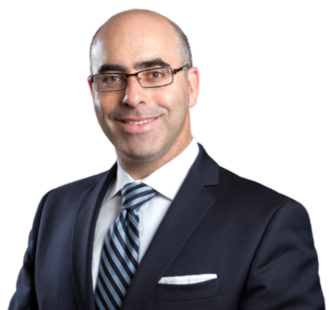August 18, 2025 | Planning Matters | 7 min read
The Quiet Crisis: Recognizing and Responding to Elder Financial Abuse During Canada's Great Wealth Transfer
At Leith Wheeler, we unfortunately hear too many stories about financial abuse of elders – with it either affecting clients, their friends, or their family. A still-grieving widow is befriended by a younger ‘friend,’ who visits her frequently sharing his stories of financial woe and extracting hundreds of thousands. A mother with early-onset dementia is convinced to cut her sons out of her Will and leave everything to her step-daughter. An uncle is called and told he’s won a sweepstakes, and then bilked out of thousands to collect his prize. In the past we’ve written about Planning for the Risk of Dementia, Fraud Prevention, and Managing Cybersecurity Threats. This edition, we’re pleased to include a guest post by Eric Hoffstein, a trust, estate and capacity litigation lawyer with experience in elder abuse.
We are living through the greatest intergenerational transfer of wealth in Canadian history. Between 2023 and 2026, an estimated $1 trillion is expected to pass from baby boomers to their Generation X and Millennial children. While this transfer presents tremendous opportunities for wealth creation and legacy building, it also presents tremendous opportunities for those who seek to enrich themselves through financial abuse of vulnerable adults.
Health Canada defines elder abuse as “the physical, psychological or financial mistreatment of a senior.” While abuse may take many forms, including physical or emotional harm, financial abuse – the unauthorized or improper use of an older adult’s money, property, or assets – is the most prevalent and often the hardest to detect. It thrives in the shadows of trust, family obligation, and power imbalances. For families and advisors alike, recognizing the red flags of financial elder abuse is not only prudent, it is essential.
What does financial elder abuse look like?
Financial abuse often begins subtly and escalates over time. It can take many forms, such as:
- Misusing or pressuring someone to sign a Power of Attorney (POA)
- Forging signatures or committing fraud
- Withdrawing funds or transferring property without informed consent
- Coercing a senior to change a Will or make financial gifts
- Living rent-free in a senior’s home without contributing to expenses
- Convincing a senior to invest in unsuitable or unapproved financial schemes
Unlike a stolen wallet, this form of theft often occurs quietly within families, through caregiving relationships, or via trusted advisors.
Common red flags for Advisors and family members
Recognizing financial abuse requires vigilance. Some warning signs include:
- Sudden changes in banking behaviour: large withdrawals, uncharacteristic spending, or added signatories to accounts
- Unpaid bills despite ample financial resources
- Missing valuables or unexplained changes in the senior’s standard of living
- A senior appearing confused about financial matters, or unable to explain transactions
- Relatives or caregivers who isolate the senior, discourage outside communication, or seem overly controlling
- Changes to legal documents (e.g. Wills, POAs, beneficiary designations) made under suspicious circumstances
It is important to note that these events can appear in older adults in completely innocent circumstances. For example, it is not unusual for an older person to appear confused about financial matters, particularly in the case of a newly widowed woman who spent her life in a traditional relationship where her husband controlled the family finances. In that case, confusion may not be a sign of elder abuse or even declining cognitive skills, but may instead be perfectly normal behaviour. It is essential to consider these warning signs in the context of the particular individual, especially where multiple warning signs are found.
In a family office or wealth management setting, a sharp-eyed advisor may notice patterns inconsistent with past behaviour: increased liquidity demands, inconsistent answers from the client about their intentions, or a new individual (often a child or caregiver) suddenly making decisions “on their behalf.”
What can you do if you suspect financial abuse
For concerned family members, advisors, or legal professionals, acting quickly and compassionately is key. Consider the following structured approach to intervention:
1. Start with a conversation. Where safe and appropriate, speak privately with the older adult. Ask open-ended questions:
- Are you comfortable with how your money is being managed?
- Do you feel pressured to make certain financial decisions?
- Do you know who has access to your accounts?
The goal is not to interrogate, but to empower. Be respectful of autonomy, but also mindful of vulnerabilities.
2. Review the Power of Attorney (PoA). Misuse of POA is a common gateway to abuse. If the senior is mentally capable, they may:
- Revoke or replace their POA
- Request a full accounting of financial activity
- Consult with an independent lawyer to reassess the arrangement
If mental capacity is in question, and abuse is suspected, a third party (e.g. a family member or professional advisor) can contact the Office of the Public Guardian and Trustee (OPGT)
to initiate an investigation.
3. Secure legal and financial advice. Involve legal counsel early. A senior-friendly lawyer can review financial documents, help stop unauthorized transactions and initiate protective actions (such as freezing accounts or issuing cease-and-desist letters).
Wealth managers and accountants can assist by:
- Reviewing transaction histories for anomalies
- Restoring secure access to financial accounts
- Flagging suspicious activity with institutions
4. Engage with trusted institutions. Banks and credit unions have protocols for reporting suspected elder abuse. Encourage the person to speak with their financial institution and, if needed, involve their fraud prevention teams.
Community resources can also help. Local seniors’ organizations, legal clinics, and elder support networks often provide free or low-cost guidance.
5. Report if necessary. In urgent cases such as theft, fraud or immediate danger, contact local police or the OPGT. Abuse involving coercion, intimidation or neglect may also breach criminal, civil or fiduciary laws.

Prevention is the best protection
While response is important, prevention remains the strongest safeguard. Here are key recommendations to help you and those you support to stay protected:
- Keep financial documents organized and secure. Keep copies of all signed documents.
- Review all bank and credit card statements regularly.
- Be cautious about co-signing loans or giving out account access.
- Understand the powers and limitations of a POA and ensure it is granted to someone trustworthy.
- Have open conversations with family and advisors about your wishes.
- Avoid signing documents you do not understand, and always seek legal advice before making large gifts, transfers or changes to your estate plan.
What you should never share over the phone or email
Seniors are frequent targets of fraudsters posing as bank representatives, government agencies or even loved ones. To protect yourself and your loved ones, never share the following information by phone or email unless you initiated the contact and are certain of the recipient's identity:
- Your Social Insurance Number (SIN)
- Banking information, including account numbers, PINs, access numbers, or online login credentials
- Credit card numbers, expiry dates or CVV codes
- Driver’s license or passport details
- Your date of birth, mother’s maiden name or answers to common security questions
- Information about who you bank with or how long you’ve banked there
- Details about your investments, insurance or Wills
Also, be wary of emails or texts that:
- Ask you to click on unfamiliar links
- Pressure you to act urgently
- Promise 'financial rewards' in exchange for a fee
Tip: No legitimate institution (e.g. bank, CRA or government agency) will ask you for this kind of information over the phone or email. If you're unsure, hang up and call the number on the back of your bank card or from the official website.
When in doubt, don't respond. Report the contact to your bank, the Canadian Anti-Fraud Centre or your local police.
A Call to Advisors: Your role is critical
Lawyers, accountants, financial advisors and family office professionals may be uniquely positioned to detect and deter abuse before it escalates. These professionals increasingly receive training to recognize warning signs of elder abuse and have policies in place for addressing any concerns. Families should engage with their professional advisors, and professional advisors should maintain regular contact with their clients. Greater transparency and documentation is often the result. Professional advisors should foster environments where seniors feel safe to speak. This kind of relationship, with regular contact with the client and supporting family members, can help prevent elder abuse from occurring in the first place.
Resources & Support
If you or someone you know is experiencing elder abuse, contact:
- Public Guardian & Trustee of British Columbia | 1-877-511-4111
- Office of the Public Guardian and Trustee (Alberta) | 1-403-297-3364
- Office of the Public Guardian and Trustee (Ontario) | 1–800–366–0335
- Curateur public du Québec |1-844-532-8728
- Canadian Anti-Fraud Centre |1–888–495–8501
- National Initiative for the Care of the Elderly (NICE)
The Bottom Line
Elder financial abuse is often a silent crime, but one with lasting consequences. As Canada’s wealth shifts hands at an unprecedented scale, ensuring the protection, dignity, and autonomy of seniors requires a group effort by the older adult, relatives, friends and professional advisors. The more engaged the adult and their network and community, the harder it is for the perpetrators of elder abuse.
About the Contributor

Eric N. Hoffstein is a Partner at Fogler, Rubinoff LLP, a Toronto-based law firm, and Co-Chair of the Tax, Wills & Estates Department. Eric practices corporate and commercial litigation and dispute resolution with a special focus on trust, estate, capacity and charity/not-for-profit law. His broad experience in trust and estate disputes includes litigation involving the family business, passings of account, will challenges, guardianships, dependant relief applications, and related proceedings. He is the Chair of the Toronto Branch of the Society of Trust & Estate Practitioners (STEP), Vice-Chair of the Trust and Estate Litigation and Professional Responsibility Group of the American Bar Association and has argued cases before all levels of Ontario courts and the Supreme Court of Canada. He can be reached at ehoffstein@foglers.com or 416-864-9757.






